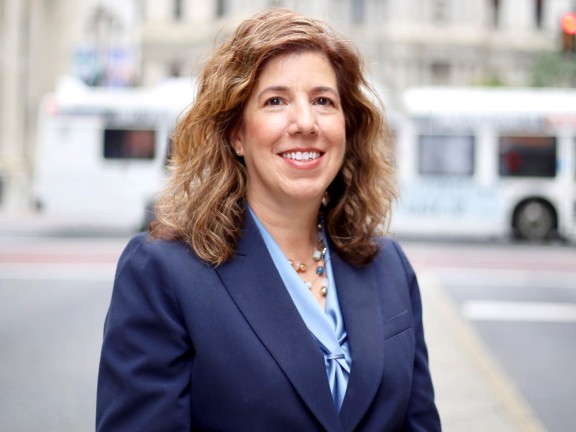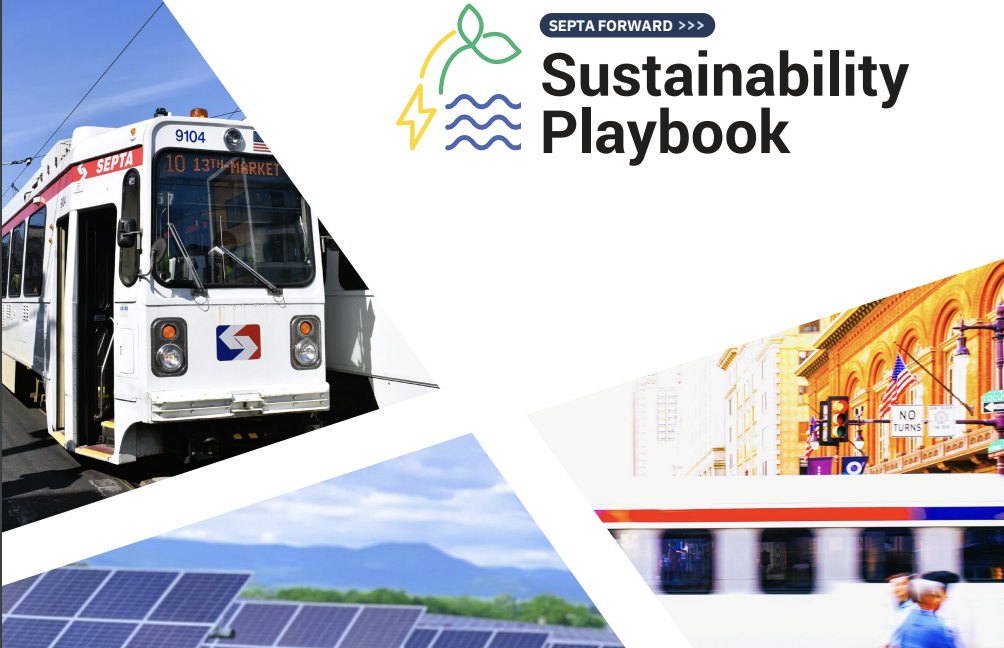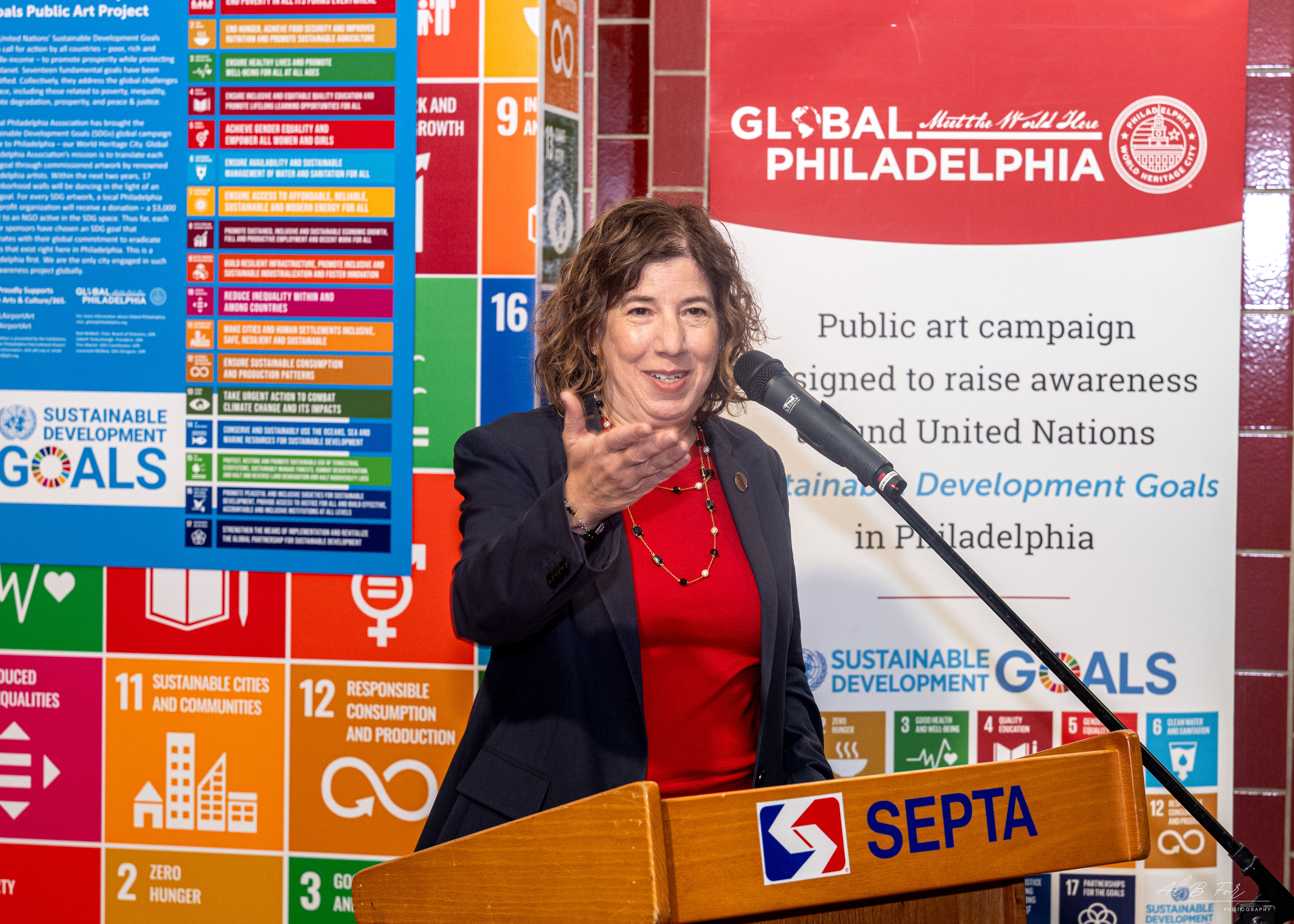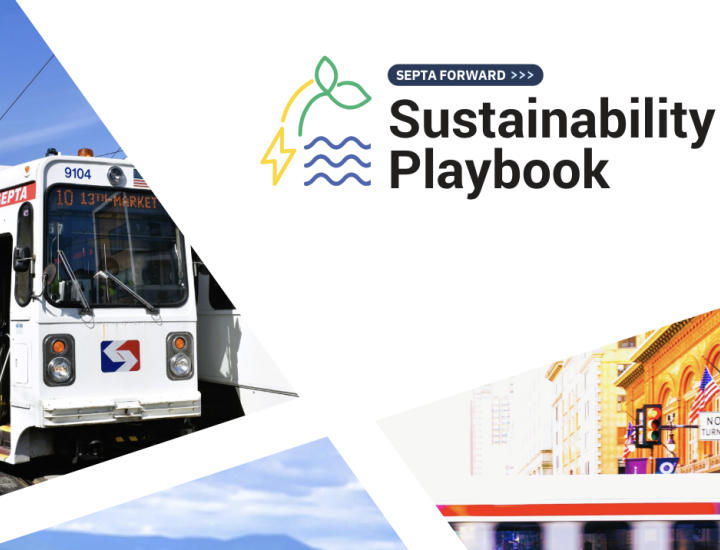A Global Conversation with Leslie Richards

Leslie Richards, Professor of Practice in the Weitzman School of Design at the University of Pennsylvania, led SEPTA as its CEO and General Manager for over four years until taking on her new role toward the end of 2024. Her work as an ongoing advocate for sustainability has earned her this year’s Sustainable Development Globy Award. Having led one of the largest public transportation agencies in the United States, Richards oversaw a $2 billion budget and a network that connects over five million residents in Greater Philadelphia. Her innovative approach and commitment to sustainable urban planning helped make SEPTA a model for efficient, eco-friendly transit systems.
Before joining SEPTA, Richards served as the first female secretary of PennDOT, where she launched the groundbreaking “PennDOT Connects” program to create long-term, sustainable transportation solutions. Known for advocating for diversity and inclusion in the industry, Richards has been widely recognized for her transformative leadership. Her work on SEPTA’s Sustainability Playbook, Communities Program, Small Business Enterprise Program, and as a professor at the University of Pennsylvania, has positively impacted countless members of the Philadelphia community. Richards is joining UPenn’s Department of City and Regional Planning in their School of Design and bringing her leadership experience from SEPTA to help guide future leaders.
Richards shared insights into her impressive career and commitments to sustainability ahead of GPA’s Globy Awards in December.
I am first interested in your career path and what led you to SEPTA and the sustainability initiatives of the organization. What drew you to SEPTA and working in sustainability?
I have a Master's in Environmental Regional Planning and was always very interested in water and air quality issues. My first job out of graduate school was at the EPA, and I worked with water and air quality issues. From there, I worked at the Central Philadelphia Development Corporation (CPDC), where I worked with businesses to reduce the number of cars that were coming into the city, by getting people onto transit or to carpool in order to reduce the emissions that were coming into the city of Philadelphia.
When I was a stay-at-home mom, I became very active in my community as a member of Whitemarsh Township’s Park and Recreation board, working on sustainability initiatives and stormwater management. I went back to work at a joint environmental consulting firm, and I realized that I really loved working on quality of life issues in communities and explaining technical issues to them. I became a Whitemarsh Township supervisor and board chair, then went on to run for County Commissioner for Montgomery County, and was later chosen to lead Governor Wolf’s Department of Transportation. I also chaired the turnpike at the time, where we did other sustainability initiatives, and even earned the “10,000 Friends of the Commonwealth” award while I was head.
I then had the opportunity to become the general manager here at SEPTA, and it’s really a culmination of all the things that I've done, because I think one of the best things you can do to help work on air quality issues is get people on to transit. Sustainability has been the common thread through all my positions.
SEPTA recently released its new Sustainability Playbook, detailing its new goals and plans for addressing sustainability needs in the coming years. Can you tell us a bit about the process of creating such a plan and the elements you see as being the most vital within it?
We are now on our third iteration of the Sustainability Playbook. One of the most exciting things about coming to SEPTA was that it already had a commitment to sustainability. We want to maximize our impact on sustainability, on all of our business practices, our systems, our equipment, and our facilities.
It is definitely ambitious. We've embedded environmental, social, and economic best practices in our operations, always coming back to our main goal, which is to support an inclusive, resilient, and connected region. SEPTA really plays a major role there.

Some of the goals are making sure our zero emission fleet of buses is as efficient as possible. We have identified the systems that are susceptible to climate change and how we can adapt measures to mitigate those risks. We're also expanding our transit-oriented Communities Program; we've established three transit-oriented communities, which promote ridership and healthy, equitable communities. Our procurement is focused on removing single use plastics from our processes. We're increasing the current cap of our Small Business Enterprise Program to make sure that we have meaningful contract opportunities for small businesses when they want to do business with us, and also making sure that they have sustainability goals.
SEPTA hosted the SDG Expo a few weeks ago, which celebrated the unveiling of the new SDG mural in Jefferson Station and promotes the GPA SDG Public Art Project and SEPTA Sustainability Playbook. How would you describe the impact of these initiatives and SEPTA’s partnership with GPA?
I was there for the unveiling of the new mural at Jefferson station. It promotes public art projects, environmental projects, the SEPTA Sustainability Playbook, along with the UN Sustainable Development Goals (SDGs) and GPA’s SDG’s Mural Project. It’s a really innovative way to position art, because it can truly be a catalyst for change. I'm very proud that SEPTA is part of this national sustainability effort. No one is doing this work alone. That's part of what brought me to environmental issues to begin with.

How do you engage the community in SEPTA's sustainability efforts?
My daughter lives in Spain, which has been very eye opening to me, because I just saw how sustainability is a part of the culture there. When we look at other countries where transit is such an integral part of the country, one of the reasons people always pick transit is because they know that that is a clean way to get around right, that it won't have negative impacts on their environment. So, I always try to do the same for myself and to talk about that to raise awareness. The amount of carbon emissions that are kept out of the Philadelphia area are because SEPTA exists. At this moment we are providing over 790,000 trips every single day. That's helping keep our air much cleaner.
When I was township supervisor as well, I had the opportunity to work on preserving a 400-acre farm. If that had gotten into developers’ hands, it would have had such strong, negative impacts on our stormwater management, on the congestion and air quality of our township, as well as on the schools with all the extra people coming into our township if 400 acres got developed right away. We worked with a variety of different issues, and it's actually how I found out about the County Commissioner job, when I went in front of the county commissioners to look for open space funding.
What are some lessons in leadership that you've learned working at SEPTA and that you might be taking into your new role?
First of all, I think it's really important for you to be yourself and to bring your whole self to every job that you do. The personal interactions and connections that you can make at all levels are very helpful. And be clear about what your main strategic goals are. Equitable, sustainable outcomes are very important to me. People should know that not only will their voices always be heard, but their ideas will always be listened to and considered in major decision making. We are all part of a team, and by working together, we're going to get the best outcomes, and it’s important for us to challenge each other in a really respectful way. There's no way that one person could know all of the different complex and varying types of information that are needed to make informed decisions, everybody plays their part.
What are you looking forward to in your new role at UPENN and how will your experience at SEPTA help you in this role?
I've loved having this ability to help people in a direct way and to help our environment in a direct way. I'm going to continue that work now at the University of Pennsylvania as a professor of practice, and I'm thrilled that I have a position in their Department of City and Regional Planning in their School of Design. I'm going to get to work with the landscape architects there about stormwater and air quality issues, what makes a community a place where people want to live and work, and how can we make improvements on a variety of issues like economic mobility, getting people out of poverty, making sure that people's voices are heard, making sure that communities are inclusive, and all of those wonderful things that I get to work on from that vantage point. The other part of the new job is that I'll be teaching and helping Master’s and PhD students with their research and what they're passionate about as well.
Do you have anything else you would like to share with our audience?
There are so many things that really involve the community, like farmers markets, working hand in hand with the city to try to find ways to plant more trees and support Mayor Parker's green initiative, and our Earth Week celebration. We wrapped our buses in sustainable messaging to remind everyone to do their part. Not only are we making sure that people can do the right thing by getting on transit, but we have made the commitment to purchase our power in the cleanest way as well. Sustainability has been a lens through which we have been able to explore all aspects of SEPTA, whether it’s the upgrading of our facilities or engaging with communities.




